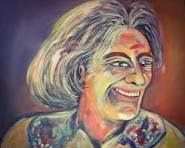REFLECTIONS ON MY MASTERS
Dear
Reader,
October is
my favourite month of the year. In the
northern hemisphere, where I studied and worked (Canada), this is when the
leaves turn red and golden, and we pick lovely mushrooms in the forest. In the
southern hemisphere, we greet springtime – a time to watch the flowers bloom
and seeds germinate in my garden and my birthday is on October 30th.
Therefore,
it is time to reflect on what I have learned from the many great Mentors, Wise
men, and guides in my life. Here are some I have particularly learned from, and
they had a deep influence on my life:
1. Jorge Rosner, my gestalt teacher and mentor for over 20 years. Jorge was a student of Dr. Fritz Perls in Chicago and then at Esalen Institute CA. Jorge established the Toronto Gestalt Institute where we studied for about four years.
2. Alejandro Jodorowsky: Jodorowsky spent almost a decade
reconstructing the original form of the Tarot de Marseille. From this work
he moved into more therapeutic work in three areas: psychomagic,
psychogenealogy and initiatic massage. Psychomagic aims to heal psychological
wounds suffered in life. This therapy is based on the belief that the
performance of certain acts can directly act upon the unconscious mind,
releasing it from a series of traumas, some of which practitioners of the
therapy believe are passed down from generation to generation. Psychogenealogy
includes the studying of the patient's personality and family tree to best
address their specific sources. It is similar, in its phenomenological approach
to genealogy, to the Constellations pioneered by Bert Hellinger.
3. Osho: He was an Indian godman, philosopher and
founder of the Rajneesh movement.He was viewed as a controversial new religious
movement leader during his life. He rejected institutional religions, insisting
that spiritual experience could not be organized into any one system of
religious dogma. As a guru, he advocated meditation and taught a unique form
called dynamic meditation. Rejecting traditional ascetic practices, he
advocated that his followers live fully in the world but without attachment to
it. In expressing a more progressive attitude to sexuality, he caused
controversy in India during the late 1960s and became known as "the sex
guru".
4. George Ivanovich Gurdjieff (c. 1867 – 29 October 1949) was a philosopher, mystic, spiritual teacher, composer, and dance teacher. Gurdjieff taught that people are not conscious of themselves and thus live their lives in a state of hypnotic "waking sleep", but that it is possible to awaken to a higher state of consciousness and serve our purpose as human beings. The practice of his teaching has become known as "The Work"(connoting work on oneself) and is additional to the ways of the Fakirs (Sufis), Monks and Yogis so that his student P. D. Ouspensky referred to it as the "Fourth Way".





